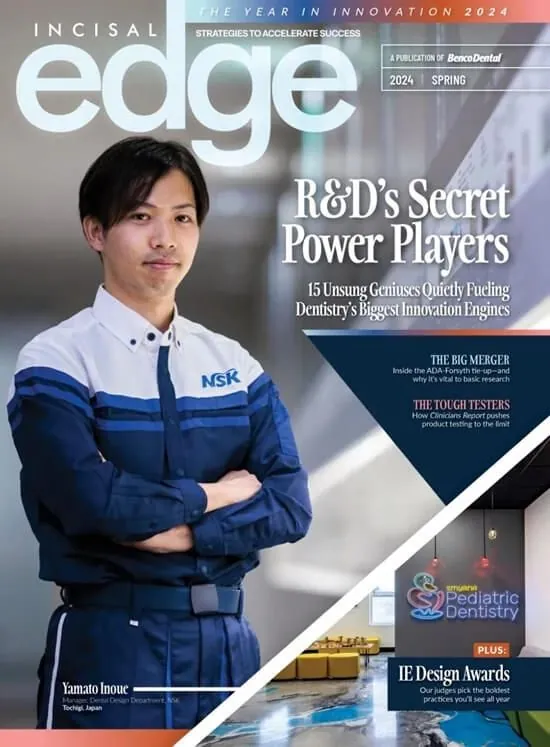Helping dental-team novices understand what’s happening, and why, is the best way to ensure practice productivity—and serenity.
NO ONE CAN possibly recognize every cause and its effects in a given workday—but the more we understand how we affect others, the better off we are. This is vital when working toward a common goal such as providing optimal patient care. It’s hard to work with those who don’t see the full impact of their actions.
These insights, which must be learned, come from developmental training. When I teach new dental assistants how to do better work, I’m helping them cross from the “unknown zone” to the “aware zone.” Much typically remains unclear to them at first, but once an illustrative example arises, their cognition becomes as clear as a lakebed on a sunny day.
One assistant I taught, for example, kept rinsing our patient’s teeth too far from his restorative field, giving the patient an inadvertent shower. As a seasoned coach, I notice almost everything: the squirt of water onto a patient’s upper lip when the assistant focuses solely on the teeth in need of a rinse. And I think about why the mistake occurred—the cause of the undesired effect. The faster I recognize discontent, and realize what’s causing it, the faster I can make it stop and prevent its recurrence.
How do we help our team’s novices learn more incisively about cause and effect, thereby speeding them faster along the learning curve? Through three main ways:
- Ensure private time for regular feedback. The less experience someone has, the more time they need to learn about cause and effect: “When you did this, it caused this to happen.” It’s important to stay in a positive teaching mode, with no anger or sarcasm. Follow up with “Did you see what happened when this occurred, in addition to our intended outcome?” This helps broaden the novice’s thinking. It requires effort to slow down and provide thoughtful remarks that foster continued learning in the greener team member.
- Uncover blind spots. Most of us have no idea how we think. We just do it as we always have. A mentor can help a team member slow down and double-check his or her work to ensure accuracy and completion. To one person, getting things done quickly is a great skill. To another, it indicates lack of focus on the details. A dental-team leader must help others recognize their strengths, but also how their strengths may become weaknesses or blind spots.
- Praise the positive, and limit constructive criticism to two or three points per day. With more give-and-take than this, both teacher and student become feedback-fatigued. Tone of voice and body language make this evident, and no one enjoys the encounter. Keep feedback sessions regular, but observe limits.
When your team finds the sweet spot, moving from the unknown zone to the aware zone with the right understanding of what’s happening each day, the comfort level skyrockets. Causes and effects become more readily identifiable, and a culture of constructive feedback channels is simultaneously created. The team becomes stronger, and patients reap the benefits.
DR. LISA KNOWLES is a dentist in East Lansing, Michigan. She also speaks nationally on mindfulness-based stress reduction for health-care professionals, eco-friendly dentistry, restoring teeth and the team, and oral/systemic issues beyond 32 teeth. Her website is Beyond32Teeth.com.




